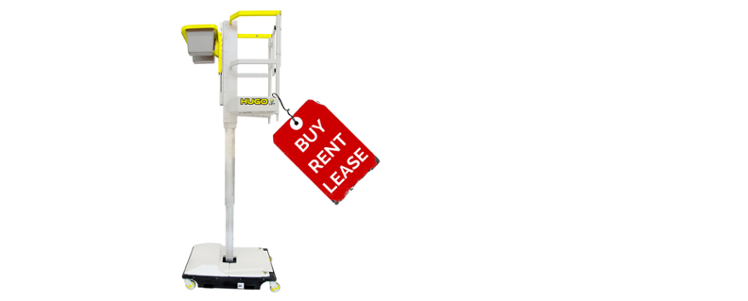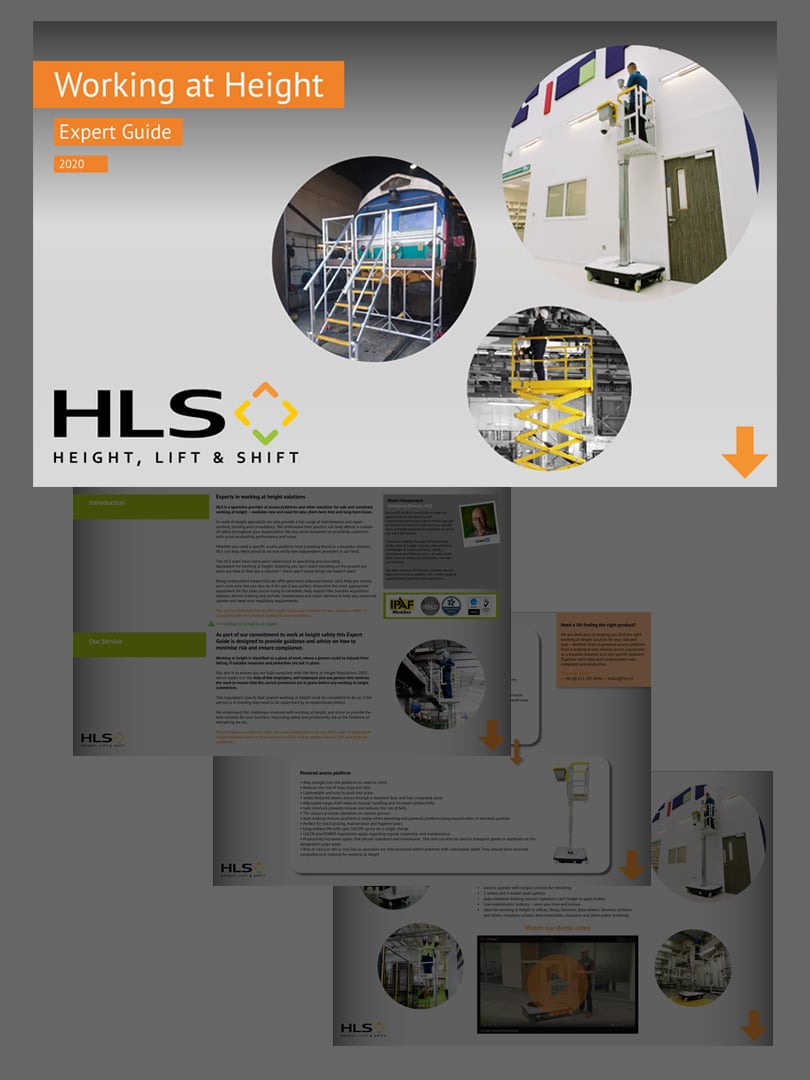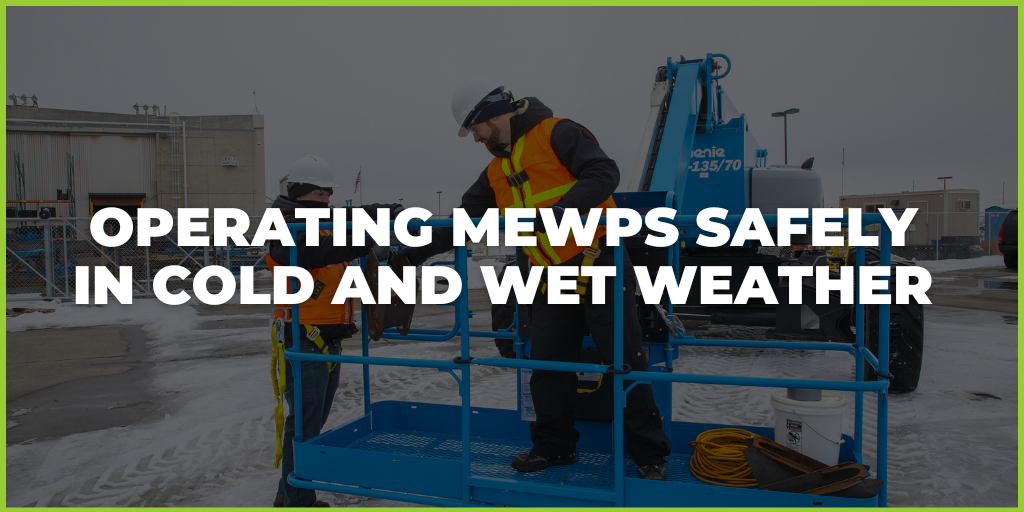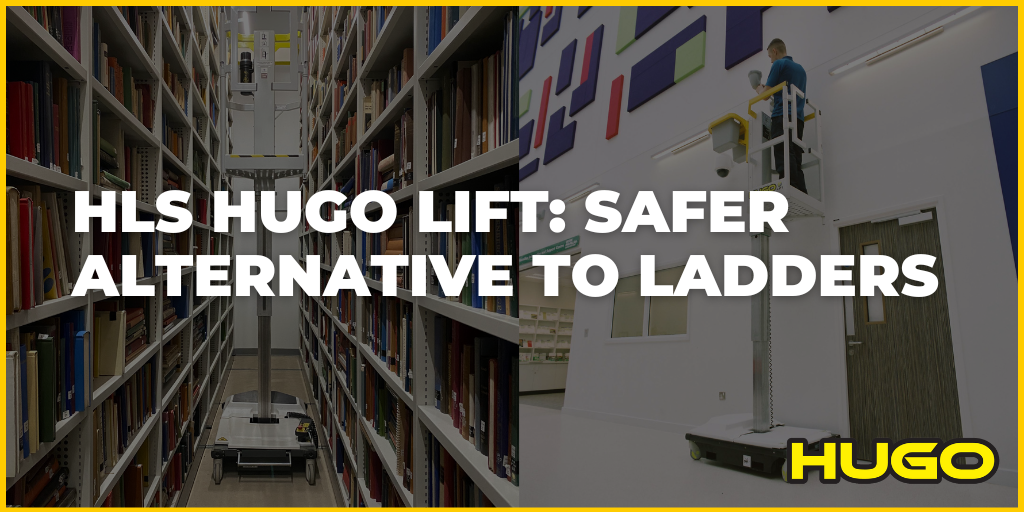Running a business is not easy and every successful business owner or manager knows that to be competitive they need to be smart and up to speed on all the latest innovations, but most of all they need to make the right investments at the right time that will help them to move their business forward.
Our team understands the complexity of investing in an expensive piece of machinery, such as a powered access platform, and we know that acquiring the equipment you need has to be something that fits your budget as well as your capital spending plans. This is why offering a wide range of acquisition methods to our clients is an integral part of the service we offer.
In this article I will outline each of the acquisition options that we offer to our customers and will explain some of their advantages and disadvantages to help you decide which is likely to be the best option for you.
Purchasing Outright
If you have the funds available to you and need to have equipment on site at all times then purchasing outright could make good financial sense.
Purchasing outright is most people's first choice and nearly 2/3 of all companies that acquired equipment in 2015 chose this route. However, before rushing into buying outright there are a number of factors to consider:
- Capital upfront and the depreciating value of the product - Purchasing an asset comes with a large initial capital investment, which can place high demands on your cashflow or capital reserves. Owning equipment also means factoring in the impact of depreciation on your asset and your company's accounts.
- Bank loans and interest rates - often when acquiring an asset via a bank loan, can raise a charge over the other assets in your business as a collateral or security against the loan. Another important factor to consider is that the rate that the bank will charge you will depend on your status with that bank, as well as your credit rating.
To make the decision easier for you we have put together a list of advantages and disadvantages for buying equipment outright.
Advantages:
- The asset is fully owned by you.
- Tax treatment: when purchasing assets outright you are treated as the owner of the asset for tax purposes, which means that you can claim capital allowances.
- The asset will cost less overall than if it was acquired via a lease or hire purchase.
- The big advantage of owning your equipment is that it’s available to you 24/7. Any unexpected changes can be quickly met and easily managed, while reliance on rental can leave you exposed and potentially unable to find the equipment you need when you need it.
- For non-incorporated businesses outright purchase is the only option HLS offer, and ensures you get the most suitable equipment for your business.
Disadvantages:
- You have to pay the full amount of the asset upfront negatively impacting on your cashflow or capital reserves.
- You may need to use an overdraft or a loan to purchase the item. Overdrafts can be withdrawn at short notice and sometimes banks can demand early repayment of loans.
- Small businesses often payer higher interest rates than big businesses.
- You can’t spread the cost to coincide with money coming into the business, or with the return on investment you expect from the asset.
- You are entirely responsible for repair, maintenance and replacing the equipment.
- The value of the asset will depreciate over time and will be worth less than what you have paid for it.
Renting - Only available to incorporated businesses
For those businesses that can’t afford to purchase equipment outright, there are plenty of other options that will not put a strain on their finances.
With renting you can chose how long you want to keep the equipment for - anything from a day, to a month, to a year or even longer. While renting is a good fix if you needed a machine and did not have the finances to purchase it, it could cost you more in the long run as the costs can add up quickly, especially if you need equipment on site all the time in case of emergencies or unplanned tasks.
The answer is to compare the cost of rental versus the cost of ownership, which will differ for every business. Ownership, while having its advantages also comes with additional costs such as maintenance and operating costs, insurance, government licensing, etc. Renting a machine means all of those costs are included in the rental rate. The length of a project, or frequency of use of the equipment should also be considered. It doesn't make financial sense to purchase equipment that you only need to use 1-week a year, for example.
Advantages:
- Lower initial investment.
- Access to a broader range of equipment.
- Maintenance is primarliy the responsibility of the rental company.
- When performing short-term or one-time jobs, it is highly cost effective.
Disadvantages:
- Rental rates can be volatile.
- You can't claim capital allowance on the asset if the rent period is for less than five years (in some cases even seven).
- You are dependent on the rental company and their equipment availability and timescale for delivery.
- You are not guaranteed to get a specific model of machine, or even the latest model.
Asset Finance - Only available to incorporated businesses
Another very well established and convenient method of acquiring assets, if you were an incorporated company, is asset finance. In 2015 alone, £29bn was funded using finance. This number represents nearly 32% of UK's investment in machinery, equipment and software.
With asset finance you have three options for purchasing: finance lease, operating lease or hire purchase. With finance and operating lease you are effectively signing a contract to use the equipment on a low repayment rate for a certain period of time. With hire purchase on the other hand you own the equipment at the end of the agreement.
Finance is an easy and logical option for anyone who can't afford to take thousands of pounds out of their pocket all at once, but knows that in order for their business to move forward and remain competitive they need to invest in better technology or more equipment.
To learn all you need to know about finance, please read our blog Asset Finance for Powered Access Equipment.
Advantages:
- Minimum cash expenditure while acquiring the latest equipment.
- Makes equipment affordable and available to you sooner.
- Ability to offset 100% of the rentals against your tax liability.
- Flexible repayment periods that take into consideration your financial circumstances.
- You can have other items structured in your agreement as well - with the possibility of building in ongoing maintenance and / or operator training.
- Investing via asset finance won’t affect your existing credit lines, your capital resources will remain intact and available to use elsewhere.
Disadvantages:
- As with renting you can’t claim capital allowances on the leased asset if the lease period is for less than five years (in some cases even seven).
- You may have to put down a deposit or make some payments in advance.
- It can work out to be more expensive than purchasing the asset outright.
- Your business can be locked into inflexible medium to long-term agreements, which may be difficult to terminate.
- When leasing an asset, you don’t own it, although you might be allowed to buy it at the end of the term.
The main difference between asset finance and renting is that with finance you would still need to go through a funder and to sign a contract usually for a minimum of two years. Renting on the other hand is a more short-term option and you can rent the equipment for as long as you want, though the monthly cost is usually far more than what would be paid under a finance agreement.
To find out which is the best acquisition option for you download our free decision tree below:
If you require any further guidance or advice you can get in touch with our team here.
References:
https://enewsletters.constructionexec.com/managingyourbusiness/2015/07/renting-vs-buying/
https://www.nibusinessinfo.co.uk/content/leasing-or-renting-business-equipment





